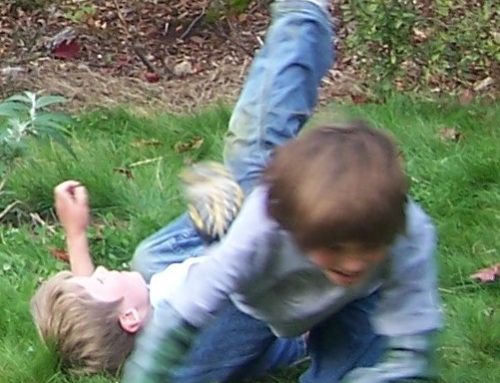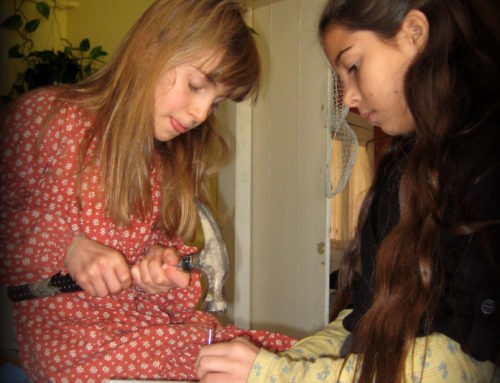Reconstructing Adult/Child Relationships
Much of the way our relationships with children are currently constructed is based on adult authority and adults acting upon children rather than sharing power and holding mutual respect with them. The labels of “adult” and “child” so often become barriers to connection, on a mutual or horizontal level, where people who find interest in each other and benefit from the company of the other engaged in freely chosen and mutually beneficial ways. What avenues does our culture provide for adult/child interaction and how might we construct these relationships in a way that they can be based on mutual respect and not primarily on adult authority?
Relationships based on Power-Over and Authority
Unfortunately, the current social construction of adult-child relationships most often is based on adult authority in kids lives, with limited scope for true mutuality. Our relationships are most often not based on building mutual respect and equal meeting of needs but are often constructed in such a way as to support the acting of adults upon children. Most relationships between adults and children give adults power and control over kids and are seldom freely chosen by both parties. Many times the focus of adults’ interactions with children is not about developing a relationship with another interesting and interested human being but about affecting the child to make him or her into something other than what he or she is.
Relating to Children as Future Adults
We (modern western and industrialized culture) have come to view childhood as preparation for life, not part of life its self, and make a distinct separation between preparing to live and then living. Unfortunately such an idea has led us to view “children” not as fellow human beings engaged with living their lives but for the future persons they will someday become. If anything, this is a devaluing experience. Who you are right now matters only in the ways that it assists the development of the future adult you will someday become (and that adult society thinks you should become). Children are then no-longer people in their own right but possess value only as future adults. Many parents and people who work with children often live with the great fear, that unless they push kids, “motivate” them, “teach them” and force them into “learning” that kids will fail at adulthood.
I experienced this first hand while working at a daycare center. There was little scope for relating to the children as fellow interesting and interested human beings, and adult actions were motivated either by controlling, managing and directing behavior or by actions that would have a desired affect on child development. There was an underlying attempt to change the kids and to turn them into something different, most often toward a teacher/adult defined goal. (And this was at a play-based center.) It’s a dishonest and subtly manipulative way of being to always be trying, through your interactions, to make someone into something else. This is not to say that adults do not have knowledge and wisdom to share with children that can help bring them into parity, but that to see children as deficient and to always be imposing on them your idea of who they should become is devaluing, imperialistic and does not respect them as the persons they currently are.
Can We Create Something Different?
How do we relate to all people as people, however they are, at whatever stage of exploration and becoming, which is honest and respectful and mutually enriching? Our engagement with children is often through relationships of obligation (to care for the child) and responsibility (for its safety and well-being) that can challenge the ability for honesty or for mutual enrichment. However, there must be a way to approach our relationships with children with respect and acknowledgment for their individuality and to find the place in which we can connect on a human level.
In Part TWO I look at some ways that kids and adults are able to have more horizontal relationships based on mutual respect and interest rather than on power and authority.
I’d love to hear from you! Please leave a comment below:


Leave A Comment